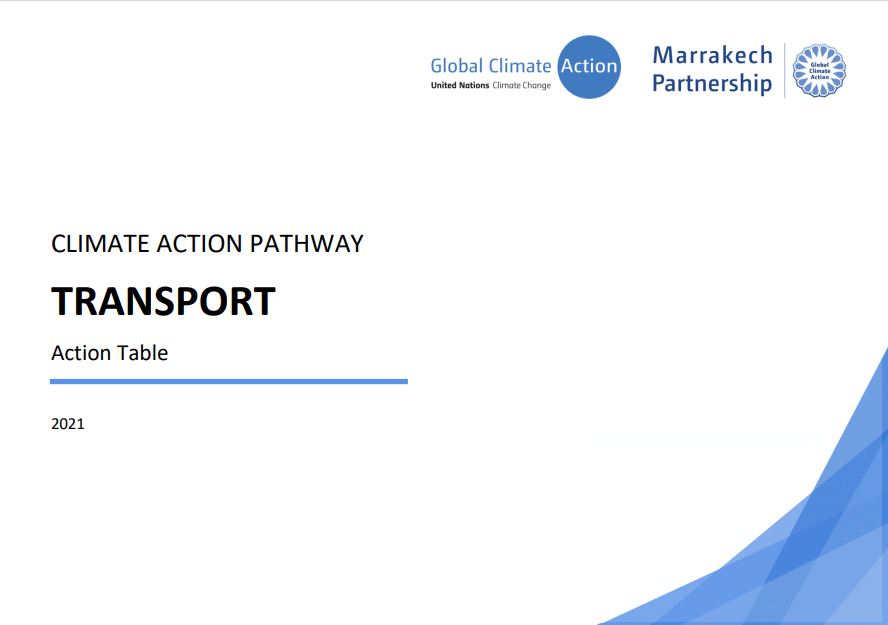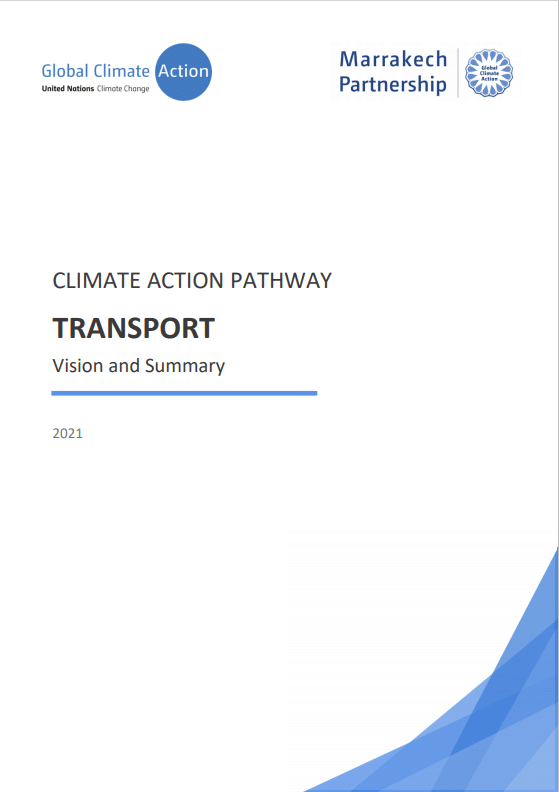
Imagine the movement of goods and of people in a future less than 30 years from now. By 2050, a shift to sustainable transport modes and vehicle technologies enabled the decarbonisation of transport systems all over the world. Air pollution is a topic of the past, roads are safer now, we experience less noise pollution and transport is accessible and safe for everyone.
This vision is outlined in great detail in version 2.1 of the UNCCC Climate Action Pathway for Transport that has been launched at the Transport and Climate Change Week 2021. Click here to read the vision statement and the action table.
The Climate Action Pathways are one of the key elements of the Marrakech Partnership for Global Climate Action, a partnership focusing on collaboration between governments and non-party stakeholders in order to reduce emissions and increase resilience against climate impacts. The Pathways set out sectoral visions for achieving a 1.5° C resilient world in 2050, with overarching transformational milestones, and key impacts that need to be achieved to realise them. The Pathways were launched for the first time in 2019 and since then have been updated periodically with the latest information and developments. In 2021, the update focused on integrating aspects of gender-responsiveness and resilience as well as on deepening the alignment of actions across the Pathway sectors.
This year GIZ actively supported the update of the Transport Pathway taking on a coordinating role between transport sector focal points Wei-Shiuen Ng from ITF and Christopher Dekki from SLOCAT, the transport sector thematic community, the UNFCCC and the team supporting the High-Level Climate Champions Gonzalo Muñoz and Nigel Topping who lead the Marrakech Partnership for Global Climate Action.


Click here to read the vision and summary of the Transport Pathway. To take a look at the table that outlines the actions required in 2020, 2025, 2030, 2040 and 2050 to decarbonise the sector click on this link. If you would like to give feedback or share your thoughts on the document please send an email to nadja.taeger@giz.de.